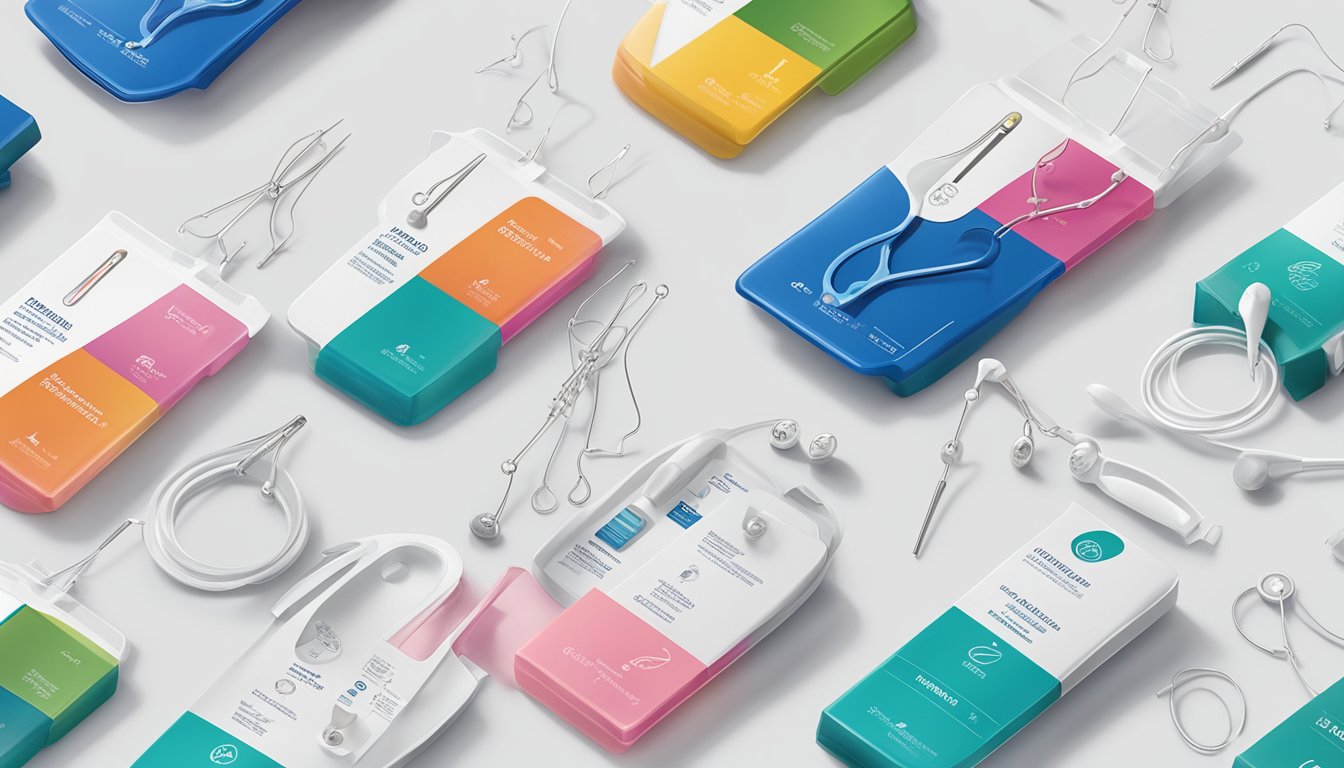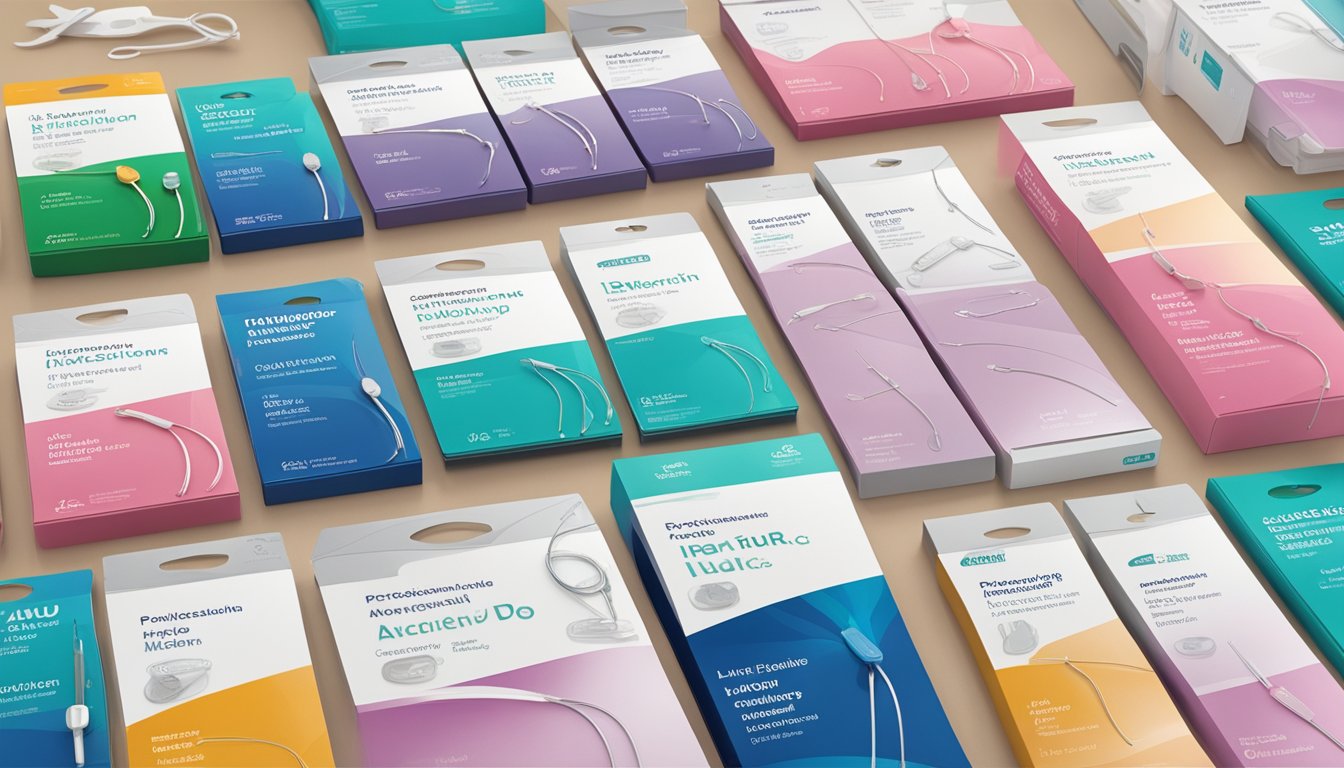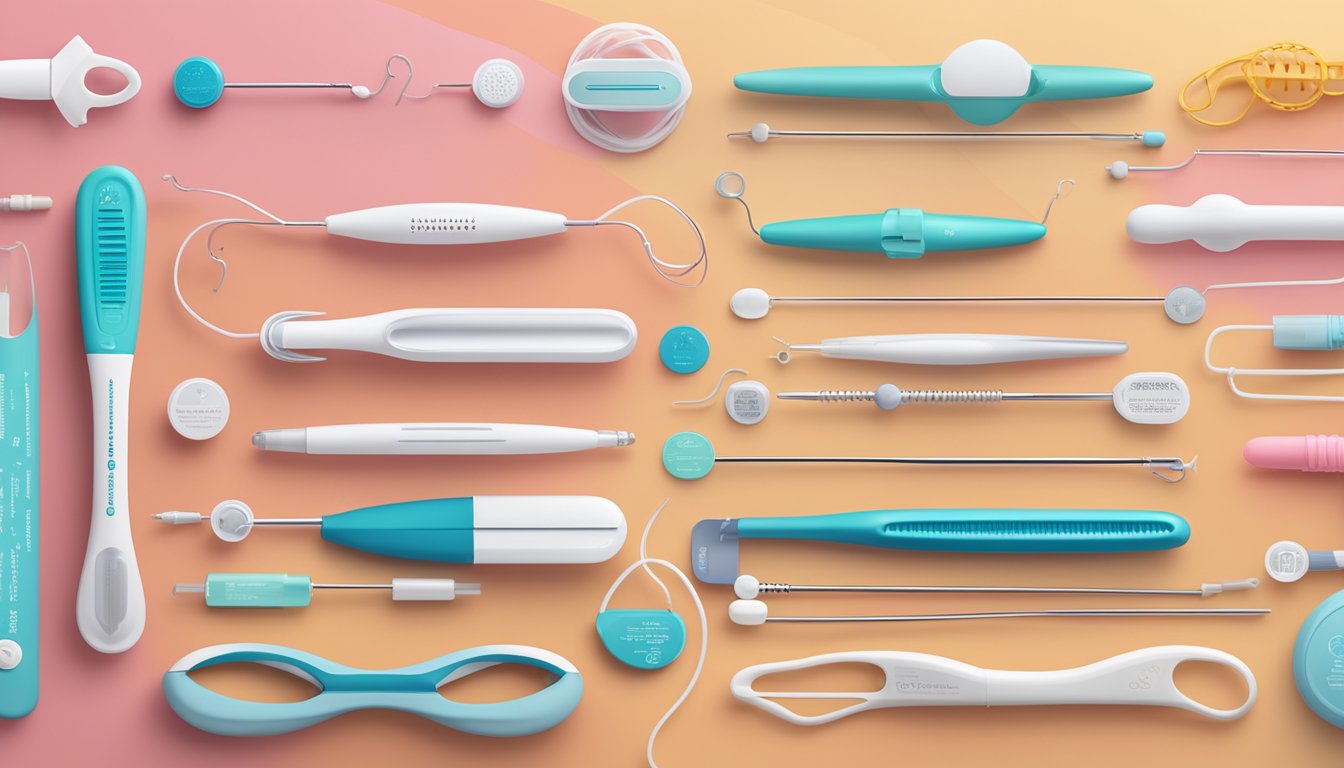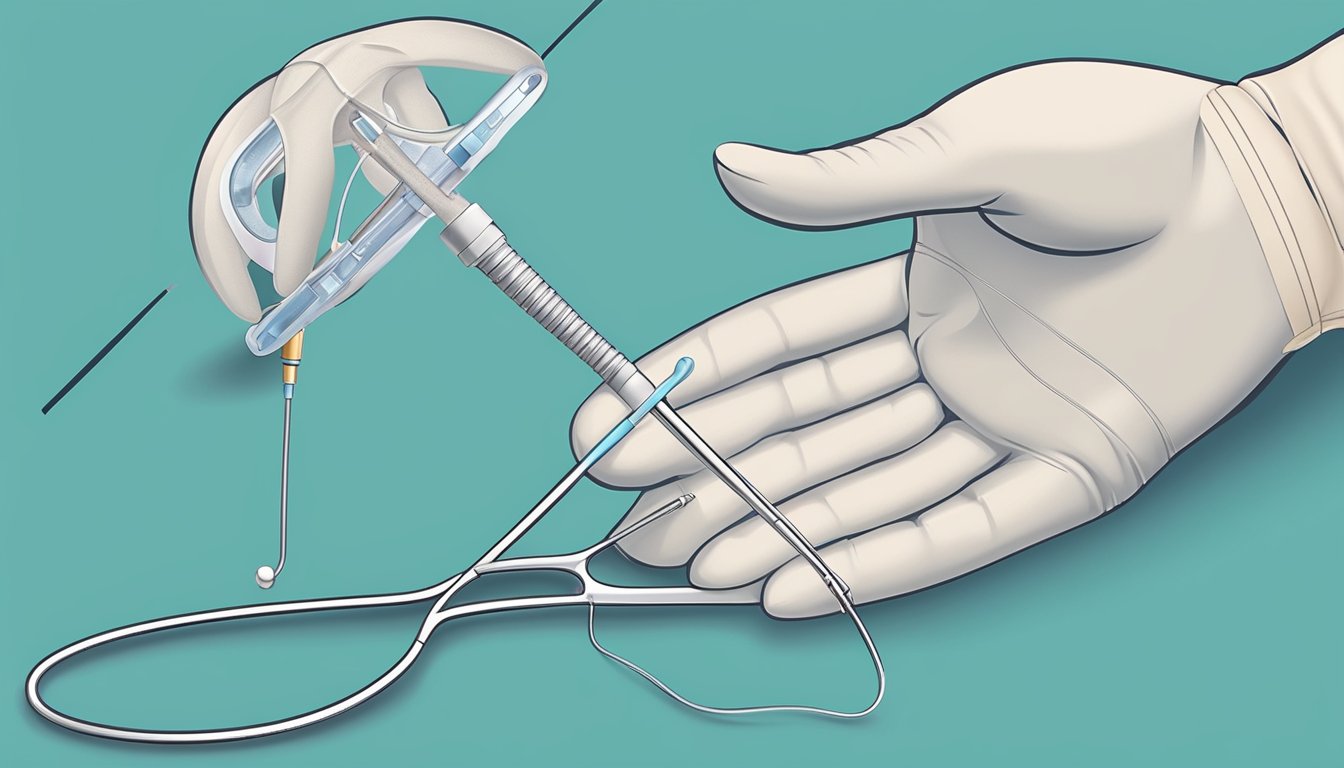
If you’re looking for a long-term and highly effective form of birth control, you may want to consider an intrauterine device (IUD). An IUD is a small, T-shaped device that is inserted into the uterus by a healthcare provider. There are two types of IUDs: hormonal and copper. Hormonal IUDs release progestin, a synthetic hormone, to prevent pregnancy, while copper IUDs use copper to create an inflammatory reaction that is toxic to sperm.
Popular IUD Brands
There are five IUD brands that are approved by the FDA for use in the United States: Mirena, Skyla, Liletta, Kyleena, and Paragard. Mirena, Skyla, Liletta, and Kyleena are hormonal IUDs, while Paragard is a copper IUD. Each brand has its own unique features, such as the amount of hormone released, the duration of use, and the size of the device. It’s important to talk to your healthcare provider about your options to determine which brand is right for you.
Benefits and Effectiveness
IUDs are one of the most effective forms of birth control available, with a failure rate of less than 1%. They are also convenient, as they can last for several years and do not require daily attention like some other forms of birth control. Additionally, IUDs can help with heavy periods and may reduce the risk of certain types of cancer. However, they do come with some potential side effects and risks, such as cramping, bleeding, and the possibility of the device becoming dislodged.
Key Takeaways
- IUDs are a highly effective form of long-term birth control that come in two types: hormonal and copper.
- There are five FDA-approved IUD brands available in the US: Mirena, Skyla, Liletta, Kyleena, and Paragard.
- IUDs are convenient, effective, and may have additional health benefits, but they also come with potential side effects and risks.
Understanding IUDs

If you’re looking for a long-term and highly effective form of birth control, an intrauterine device (IUD) may be the right choice for you. In this section, we’ll provide a brief overview of what IUDs are, the different types available, and how they work.
What Is an IUD?
An IUD is a small, T-shaped device that is inserted into your uterus to prevent pregnancy. It’s made of either plastic or copper and can be either hormonal or hormone-free. Hormonal IUDs release progestin, a hormone that thickens cervical mucus and thins the lining of the uterus, making it difficult for sperm to reach and fertilize an egg. Copper IUDs, on the other hand, work by releasing copper ions, which are toxic to sperm and prevent fertilization.
Types of IUDs
There are several different brands of IUDs available in the UK, including Mirena, Skyla, Liletta, Kyleena, and Paragard. Mirena, Skyla, Liletta, and Kyleena are all hormonal IUDs, while Paragard is a copper IUD. Each brand has its own unique features and benefits, so it’s important to talk to your healthcare provider to determine which one is right for you.
One of the advantages of IUDs is that they are long-lasting and require very little maintenance. Hormonal IUDs can last for up to 5 years, while copper IUDs can last for up to 10 years. Additionally, IUDs are highly effective at preventing pregnancy, with a failure rate of less than 1%.
In terms of cost, IUDs can be expensive upfront, but they are a cost-effective option in the long run. Hormonal IUDs can cost around £100-£200, while copper IUDs can cost around £50-£100. However, this cost may be covered by the NHS or your insurance provider.
Overall, IUDs are a safe and effective form of birth control that can provide long-term protection against pregnancy. If you’re considering an IUD, talk to your healthcare provider to learn more about your options and determine which one is right for you.
Popular IUD Brands

If you’re considering an IUD as your birth control option, you’re probably wondering which brands are the most popular and effective. Here are the most popular IUD brands available in the UK:
Mirena
Mirena is a hormonal IUD that releases levonorgestrel, a hormone that prevents pregnancy. It can last up to 5 years and has a 99% effectiveness rate. Mirena is a popular choice for those who want a long-term, hormonal birth control option.
Skyla
Skyla is another hormonal IUD that releases the hormone progestin. It can last up to 3 years and has a 99% effectiveness rate. Skyla is a good option for those who want a shorter-term, hormonal birth control option.
Liletta
Liletta is a hormonal IUD that releases levonorgestrel. It can last up to 6 years and has a 99% effectiveness rate. Liletta is a newer IUD option and is becoming increasingly popular due to its long-lasting effectiveness.
Kyleena
Kyleena is a hormonal IUD that releases levonorgestrel. It can last up to 5 years and has a 99% effectiveness rate. Kyleena is a good option for those who want a long-term, hormonal birth control option.
Paragard
Paragard is a copper IUD that is hormone-free. It can last up to 10 years and has a 99% effectiveness rate. Paragard is a popular choice for those who want a long-term, hormone-free birth control option.
All of these IUD options are FDA-approved and considered safe and effective. When choosing an IUD, it’s important to consider your personal preferences and needs. Talk to your healthcare provider to determine which IUD option is right for you.
IUDs are a great option for those who want a long-term, effective birth control option. With the many IUD options available, you’re sure to find one that fits your needs and lifestyle. So, don’t hesitate to talk to your healthcare provider and start exploring your IUD options today!
Benefits and Effectiveness

Contraceptive Efficacy
When it comes to preventing pregnancy, IUDs are one of the most effective birth control options available. They are over 99% effective and can last up to 10 years, depending on the brand. This means that you can enjoy long-term contraception without worrying about taking a pill every day or using other methods of birth control.
IUDs work by preventing sperm from reaching the egg. Hormonal IUDs thicken the cervical mucus, making it difficult for sperm to swim through and fertilize the egg. Non-hormonal IUDs, such as Paragard, create an environment in the uterus that is toxic to sperm, preventing fertilization.
Health Benefits
In addition to preventing pregnancy, IUDs can offer a variety of health benefits. Hormonal IUDs can help regulate your menstrual cycle, making your periods lighter and less painful. They can also reduce menstrual cramps and prevent anemia. Non-hormonal IUDs do not affect your menstrual cycle, but they do not increase the risk of endometrial cancer, unlike some hormonal birth control options.
IUDs are also a great option for women who cannot use hormonal contraception due to health reasons. They do not contain estrogen, which can increase the risk of blood clots and other health problems. Additionally, IUDs do not require daily maintenance, making them a convenient and hassle-free option.
Overall, IUDs are a safe and effective form of birth control that can provide long-term contraception and a range of health benefits. If you are considering an IUD, talk to your doctor about which brand is right for you and whether it is a good option for your individual needs.
Considerations and Side Effects

When considering an IUD, there are a few things you should keep in mind. Here are some potential risks and things to consider when choosing the right IUD for you.
Potential Risks
While IUDs are generally safe and effective, there are some potential risks to be aware of. Some women may experience bleeding, cramping, and spotting after an IUD is inserted. This is normal and should go away on its own within a few weeks.
Other potential side effects include cramps, painful periods, heavier bleeding, breast tenderness, weight gain, headaches, nausea, discomfort, and irregular periods. While these side effects are usually mild and go away on their own, some women may experience more serious complications.
Complications from IUDs are rare, but they can occur. These include uterine perforation, pelvic infection, and ectopic pregnancy. If you experience any of these symptoms, you should contact your healthcare provider immediately.
Choosing the Right IUD
When choosing an IUD, there are a few things to consider. First, you need to decide if you want a hormonal or non-hormonal IUD. Hormonal IUDs can help with painful periods, acne, and backaches. Non-hormonal IUDs are a good option for women who cannot use hormonal birth control due to liver disease or other health issues.
You should also consider the cost of the IUD and whether it is covered by your insurance. Hormonal IUDs can cost anywhere from $500 to $1000, while non-hormonal IUDs are generally less expensive.
Finally, you should choose an IUD that fits your lifestyle and comfort level. Some women prefer a smaller IUD that is less noticeable, while others prefer a larger IUD that is more effective at preventing pregnancy.
In conclusion, IUDs are a safe and effective form of birth control, but they do come with some potential risks and side effects. By choosing the right IUD for you and being aware of these risks, you can enjoy the benefits of long-term contraception without worrying about unwanted pregnancy.
IUD Insertion and Removal

Inserting and removing an IUD is a simple and quick procedure that can be done by a healthcare provider. During insertion, the healthcare provider will insert the IUD through the cervix and into the uterus. The procedure may cause some discomfort, but it usually takes only a few minutes to complete.
After insertion, you may experience some cramping and spotting for a few days. However, these symptoms should subside quickly. If you experience severe pain or heavy bleeding, you should contact your healthcare provider immediately.
Removing an IUD is also a simple procedure that can be done by a healthcare provider. During removal, the healthcare provider will gently pull on the strings attached to the IUD until it comes out of the uterus. The procedure may cause some discomfort, but it usually takes only a few minutes to complete.
It is important to have your IUD removed by a healthcare provider. Attempting to remove the IUD yourself can lead to serious complications, such as pelvic inflammatory disease or infections.
IUDs are a highly effective form of contraception, with a failure rate of less than 1%. They can last for several years, depending on the type of IUD you have. Copper IUDs can last for up to 10 years, while hormonal IUDs can last for up to 5 years.
Overall, IUDs are a safe and effective form of contraception. If you are considering getting an IUD, talk to your healthcare provider to see if it is right for you.
Frequently Asked Questions

What are the differences between hormonal and copper IUDs?
Hormonal and copper IUDs are two types of intrauterine devices that are used for birth control. Hormonal IUDs release a small amount of progestin hormone, while copper IUDs are hormone-free. Hormonal IUDs are highly effective in preventing pregnancy by thickening the cervical mucus and thinning the uterine lining. Copper IUDs work by creating an environment that is hostile to sperm, preventing fertilization. The choice between hormonal and copper IUDs depends on individual preferences and medical history.
How do the side effects vary across different IUDs?
IUDs can cause side effects such as irregular bleeding, cramping, and mood changes. However, the severity and frequency of side effects can vary between different brands of IUDs. Hormonal IUDs such as Mirena and Liletta are associated with a higher likelihood of amenorrhea (absence of periods), while copper IUDs such as Paragard can cause heavier periods and cramping. It is important to discuss potential side effects with your healthcare provider before choosing an IUD.
What factors should I consider when choosing between Mirena and Liletta?
Mirena and Liletta are two popular brands of hormonal IUDs that are similar in many ways. However, there are some differences to consider when choosing between the two. Mirena contains more progestin hormone and is approved for use for up to five years, while Liletta contains less hormone and is approved for up to four years. Additionally, Mirena is slightly more expensive than Liletta. Your healthcare provider can help you decide which IUD is best for you based on your medical history and preferences.
Can you compare the effectiveness of various IUD brands?
All IUDs are highly effective in preventing pregnancy, with failure rates of less than 1%. However, there are some differences in effectiveness between different brands of IUDs. Hormonal IUDs such as Mirena, Liletta, Kyleena, and Skyla are all more than 99% effective in preventing pregnancy, while copper IUDs such as Paragard are slightly less effective at around 99.2%. It is important to note that effectiveness can vary based on individual factors such as age and medical history.
What are the latest advancements in IUD technology?
There have been several recent advancements in IUD technology, including the development of smaller and more flexible IUDs. Additionally, some newer IUDs such as Kyleena and Liletta contain lower doses of hormones than older brands such as Mirena, which may reduce the risk of side effects. It is important to discuss the latest advancements in IUD technology with your healthcare provider to determine which IUD is best for you.
How long does each type of IUD typically last?
The lifespan of an IUD varies depending on the brand and type. Hormonal IUDs such as Mirena, Liletta, Kyleena, and Skyla are approved for use for three to five years, while copper IUDs such as Paragard can last for up to 10 years. It is important to discuss the lifespan of each type of IUD with your healthcare provider to determine which option is best for you.




